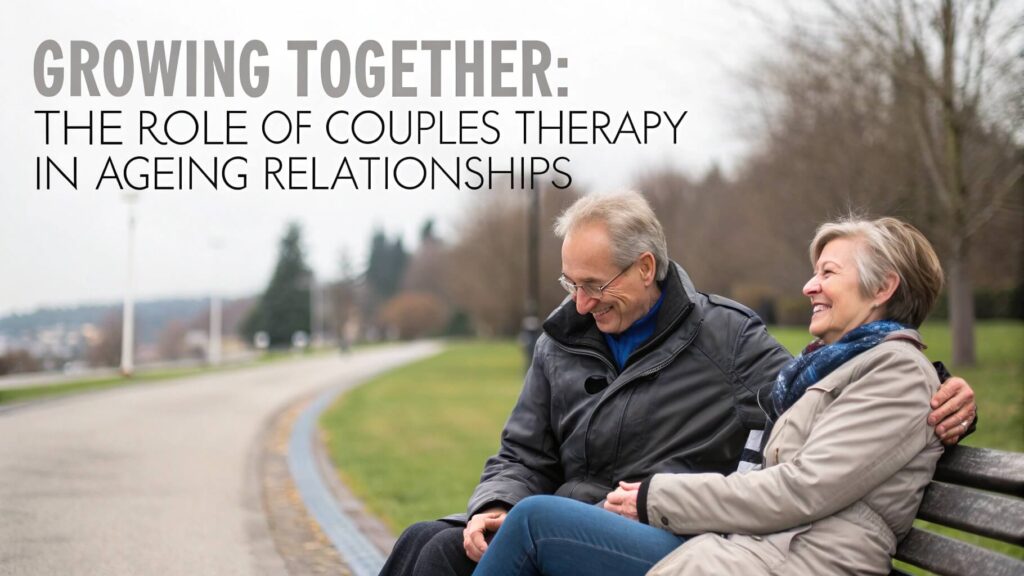G’day folks. Let’s chat about something that doesn’t get talked about enough around the barbie or over a cuppa: what happens to us when we get older. You know the picture – you and your partner, decades under your belts, a lifetime of inside jokes, shared memories etched deep. Maybe the kids have flown the coop, retirement’s on the horizon, promising lazy Sunday mornings and maybe that big trip up north you’ve always dreamed about. Sounds blissful, right?
Love’s Journey: Navigating the Shifting Tides of Ageing
Getting older changes the landscape, doesn’t it? Beautiful sunsets, sure, but also some unexpected weather. It naturally shakes up even the strongest partnerships:
Hanging up the work boots or closing the laptop for good is a massive shift. Suddenly, the structure that defined so much of life – and maybe even your identity – is gone. Figuring out who you are now, individually and as a pair, takes some real soul-searching. How do you fill those days meaningfully, both on your own and side-by-side?
Let’s face it, creaky knees, managing a chronic condition, or just feeling the energy levels dip becomes more common. These aren’t just personal things; they change the dance of your relationship. One might need more support, roles can flip unexpectedly, and that physical closeness you once took for granted might need some gentle rethinking. This is where simply being mindful of each other’s physical limits – call it practical injury prevention – becomes an act of love. Making the home safer, choosing activities you can both enjoy safely, looking out for each other on walks… it’s not just about avoiding slips and falls, it’s about protecting the ability to keep sharing life’s adventures, hand-in-hand.
As the years roll on, loss becomes a more frequent visitor. Friends, siblings, sometimes even your own independence. Hormones shift, health intervenes, or sometimes the spark just gets buried under the daily routine. Emotional intimacy can fade too if you stop really talking, not just about the bins, but about the stuff that matters. Rediscovering that connection – finding new ways to feel close – becomes incredibly important.
Decades together mean decades of… well, stuff. Little unresolved arguments, patterns of communication that don’t work anymore, maybe resentments that were easier to ignore when life was busier. With more quiet time together, that drawer can sometimes spring open unexpectedly.
Couples Therapy: More Than Just Fixing Broken Things
So, what’s couples therapy for folks like us really about? Forget those dramatic TV portrayals. It’s not about blame sessions or picking over ancient history like a scab. Think of it more like having a skilled, neutral guide on a walk through your relationship landscape. Someone who helps you:
- Actually Hear Each Other: Learn to listen properly – not just wait for your turn to talk. Discover how to say what you really need without starting World War III (“I miss our chats about your day” lands way better than “You never tell me anything!”).
- Sail Through Life’s Big Shifts: Retirement, health news, becoming grandparents, downsizing the family home – therapy gives you tools to process these massive changes as a team, figure out new roles, and find fresh purpose together. What’s our next adventure?
- Address the pieces of your Specific Speed Bumps: Whether you’re re-igniting that flame, managing the pressure of taking care of one another (or aging parents), mourning after a loss, or finally resolving that one fight you’ve had on repeat since 1995, therapy provides you with concrete tools that suit your narrative.
- Reattach the Heart Wires: Do you remember why you fell in love all those years ago? Therapy helps you connect those shared values you have, relearn the little things you love about each other, and build a stronger, more resilient friendship. It’s about loving just being around each other again.
- Plan for the Road Ahead (Even the Hard Bits): Let’s face the elephant in the room. Aging requires accepting the realities of future health, care requirements, money, and end-of-life desires. To have these important, sometimes difficult, talks with support can take an enormous burden off. Knowing you’re on the same page gives wonderful peace of mind for the future. Having any idea of available aged care services, even just considering the options like home care packages or respite care, takes practical concerns off that exert subtle pressure on a relationship. Knowing the support is a relief.
Let’s Bust Some Myths

Hang on, before you write it off, let’s tackle a few common worries head-on:
- “We’re too set in our ways, too old to change.” Rubbish! Our brains adapt all the way through our entire lifetime. It is work to undo old habits, undoubtedly, but to adapt new ways of communicating and relating? With some willingness and good teaching, absolutely possible. You’re never too old to grow.
- “Therapy is only for when everything’s completely cactus.” Don’t wait till the wheels come off. It’s like having the car serviced ahead of time so you don’t get stuck on the Nullarbor. Proactive therapy builds resilience and capacity for coping with life’s speed bumps before they become mountains. It’s an investment in your shared happiness.
- “It’s embarrassing. What will people think?” Crikey, requesting assistance is an indication of strength, dedication, and deep love! It requires great courage to be honest about your relationship and state, “Let’s make this even better.” It’s about respecting what you’ve created.
- “We’ll sort it out ourselves, we always do.” There are times when you are too close to be able to read the map properly. A therapist is one such friend who points out the turn you’ve missed to you – offering a fresh pair of eyes and methods you might not notice for yourself.
Taking That First Step: A Gentle Nudge
Okay, so you’re thinking about it. Making that first call feels huge. Here’s how to make it a bit easier:
- Frame it with Love: Start the chat with something like, “Love, I was thinking… I really value us, and I reckon we could make this next chapter even more brilliant together. What if we explored that?” Focus on the future, not fixing the past.
- Pick Your Moment: Not during the footy final or after a blue. Find a calm moment, maybe sitting out the back with a cuppa on a quiet arvo.
- Acknowledge the Awkward (Gently): “Look, I know talking about this might feel a bit strange, but I’ve heard it can really help couples like us communicate better, especially with everything changing lately.”
- Team Goals: Emphasise what you both want: more peace, more laughs, feeling like a stronger team facing whatever comes next, truly enjoying this golden time. It’s about “us,” not “me vs you.”
- Be Kind & Patient (With Yourselves!): Change takes time. There might be tough sessions. Celebrate the small wins – a better conversation, a shared laugh you haven’t had in ages. Pack some Tim Tams for the drive home! Remember, you’re learning a new dance step together.
- Think About Your Whole Support Crew: While therapy focuses on your bond, remember that aging well involves practical support too. Knowing what’s out there – whether it’s home help or understanding aged care pathways – takes pressure off, freeing up energy to focus on each other. Peace of mind is priceless.
Wrapping Up
That partnership of yours? It’s one of your life’s greatest treasures. Just like you’d plan for your super or look after your physical health, investing in your emotional connection is vital, especially now. Ageing together throws unique challenges your way, but it also offers this incredible depth – a chance for profound companionship, shared wisdom, and a love that’s weathered the seasons.
Couples therapy isn’t about trying to be twenty again. It’s about consciously, lovingly shaping the relationship you have right now and the one you want for the years ahead. It’s about ensuring the autumn of your love story is rich with warmth, vibrant colour, and the quiet strength of truly growing together, roots intertwined.

